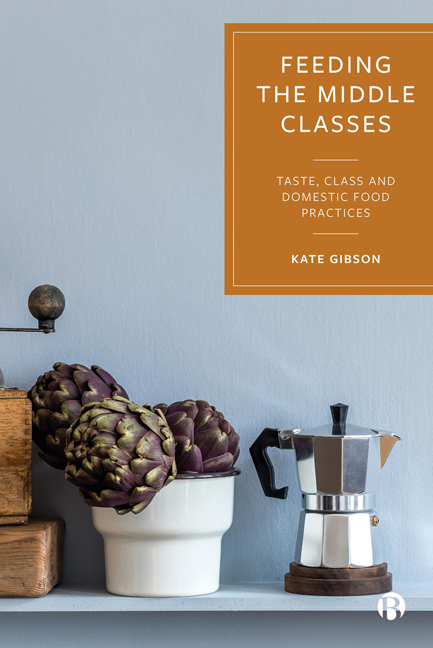Book contents
- Frontmatter
- Contents
- List of Figures and Table
- Acknowledgements
- 1 Introduction
- 2 Class, Consumption and the Domestication of Food
- 3 Talking Food: Classed Narratives, Social Identities and Biographical Transitions
- 4 Homemade Food: Individualized Processes of Household Investment
- 5 Culinary Capital: Knowledge, Learnt Practice and Acquired Taste
- 6 Conclusion
- References
- Index
6 - Conclusion
Published online by Cambridge University Press: 27 March 2024
- Frontmatter
- Contents
- List of Figures and Table
- Acknowledgements
- 1 Introduction
- 2 Class, Consumption and the Domestication of Food
- 3 Talking Food: Classed Narratives, Social Identities and Biographical Transitions
- 4 Homemade Food: Individualized Processes of Household Investment
- 5 Culinary Capital: Knowledge, Learnt Practice and Acquired Taste
- 6 Conclusion
- References
- Index
Summary
The interpretations which form the basis of this book are based on rigorous analysis of visual and verbal data co-produced in domestic settings. Of course, had someone else with contrasting experiences and perspectives interpreted the data, a different story could have emerged. But social research cannot claim to uncover a single objective and universal truth; there is always more than one version of the story.
The story this book tells is about the intimate ways that class is connected, through food, to identity and the home. I have recounted data which starts from participants’ childhoods and traced their journeys into the established households in which our research conversations took place. From this vantage point, I learnt about the ways in which respondents incorporate food and ideas about food into their homes to arrive at the point of eating. I have looked towards everyday practices of domestic food provisioning with the aim of understanding how in middle-class settings some foods and modes of eating are valued and normalized, while others are implicitly and explicitly rejected and othered. This sample of 27 self-selected participants residing in the North East of England is by no means representative of the British ‘middle classes’. However, I contend that these small-scale domestic interactions have implications for a broader understanding of the relational ways that class both provides access to particular ways of eating and reproduces eaters who participate in very specific ways of valuing ‘good’ food. In this final chapter, I gather together the themes which have emerged in this book to offer a concluding discussion about the broader implications of taste, middle-class identities, and domestic food provisioning in contemporary Britain.
Reflexive identities
Ingrid: I apologize that The Archers has just come on (laughs). It sounds so middle class (laughs).
KG: I remember now you said you listened to the Archers while you had your tea (laughs)
Participants were recruited for this research based on my assumptions that they were located in middle-class social positions. Interview talk highlighted the contested ways that participants related to their class position. Reflecting research which highlights the ambiguity of class belongingness (Savage 2000; Friedman et al 2021), overall participants struggled against social categorization, specifically as being seen as middle class in any straightforward way.
- Type
- Chapter
- Information
- Feeding the Middle ClassesTaste, Class and Domestic Food Practices, pp. 140 - 154Publisher: Bristol University PressPrint publication year: 2023



